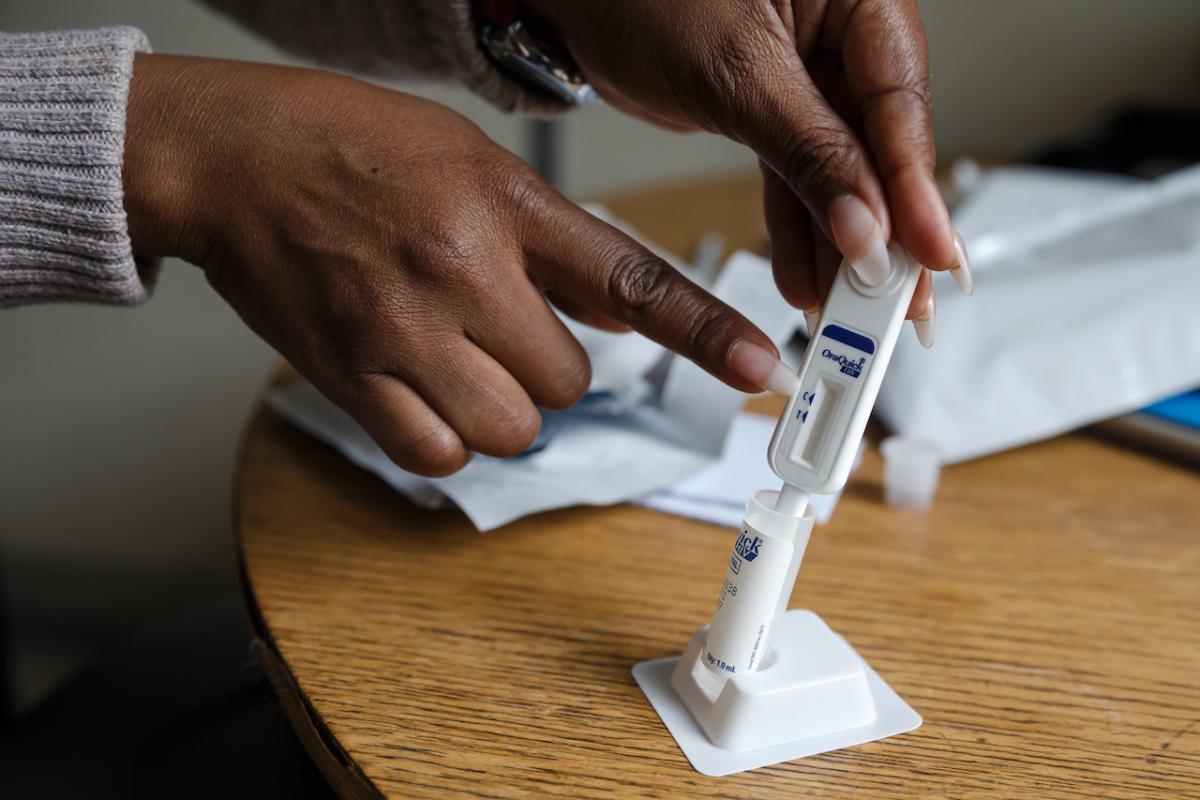Stakeholders take stock of HIV Self Testing Campaign effort in Nigeria
The FASTER Project of the Catholic Relief Services (CRS) Nigeria is bringing HIV stakeholders together to take stock and review achievements recorded in ensuring children and adolescents are left behind due to barriers associated with conventional HIV testing models and, particularly given the COVID-19 enforced disruptions to HIV testing are reached. HIV self-testing (HIVST) is […]

HIV self-testing
The FASTER Project of the Catholic Relief Services (CRS) Nigeria is bringing HIV stakeholders together to take stock and review achievements recorded in ensuring children and adolescents are left behind due to barriers associated with conventional HIV testing models and, particularly given the COVID-19 enforced disruptions to HIV testing are reached.
HIV self-testing (HIVST) is seen as a possible mechanism to help increase HIV testing uptake and capture otherwise undiagnosed HIV cases.
- Malnutrition, a national pandemic in Nigeria – U.S. SOY
- NIGERIA DAILY: Can Technology boost the fight Against Insecurity In Nigeria?
It particularly provides young people and the general public with a convenient, discreet, and empowering way to know their HIV status.
First recommended in 2016 by the World Health Organisation (WHO), HIV self-testing, is an alternative to traditional HIV testing services (HTS) given its potential to expand HIV testing access to the hardest to reach population – young people who are at risk for or with an undiagnosed HIV infection who may not otherwise receive testing from conventional services.
HIV self-testing (HIVST) allows individuals to collect their sample (either oral- or blood-based), conduct the test, and interpret the results privately or with someone that they trust.
More recently, the Federal Ministry of Health incorporated HIVST into the revised National HIV and AIDS strategic framework 2019–2021, as a priority policy and programmatic approach to HIV response in Nigeria.
In a statement, Dr Chizoba Mbanefo, FASTER Project Director of the Catholic Relief Services (CRS) Nigeria, said: ‘‘HIVST strategy has shown that one of the best ways to find new HIV cases is putting demand creation in the hands of the adolescents themselves and closely engaging parents and caregivers.’’
To be sure, the World Health Organisation (WHO) has encouraged people to take advantage of the self-testing HIV kits that are now available globally.
The global health body says doing so will enable people to detect their HIV status privately, and enable them to take decisive steps in addressing the outcomes, according to its verified Twitter handle @WHO.
The WHO message was marked with hashtag #SelfCare.
Dr Mbanefo said issues stakeholders would be deliberating on include: Improving Case finding amongst paediatrics adolescent populations using HIVST, HIVST Research to Implementation with recommendations, updates on HIVST national policy and guidelines and improving case finding through public and private sector collaboration- partnership with Community Pharmacies and other stakeholders.
The FASTER Project Director added that these issues would be reviewed through panel discussions that promises to reveal next steps in the program implementation with a clear cut direction for Nigeria.
Stakeholders expected at the meet include the: National Agency for the Control of AIDS (NACA), UNAIDS, NASCP, CDC, USAID, NEPWHAN, WHO, other HIV implementing partners in the country, private sector players and CSOs.
